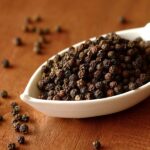Contents
- 1 Benefits of Smoothies for Fatty Liver
- 2 Tips for Making Liver-Friendly Smoothies
- 3 What Are the Best Ingredients for Smoothies for Fatty Liver?
- 4 What Are the Nutritional Benefits of Smoothies for Fatty Liver?
- 5 What Should Be Avoided in Smoothies for Fatty Liver?
- 6 Are There Specific Smoothie Recipes That Are Good for Fatty Liver?
- 7 Conclusion
Benefits of Smoothies for Fatty Liver
1. Nutrient-Dense Ingredients:
- Fruits and Vegetables: Smoothies made with a variety of fruits and vegetables provide essential vitamins, minerals, and antioxidants that support overall liver function. Ingredients like leafy greens, berries, and citrus fruits are particularly beneficial due to their high antioxidant content, which helps protect liver cells from damage.
2. High in Fiber:
- Supports Digestion and Detoxification: Adding fiber-rich ingredients like spinach, kale, and flaxseeds to your smoothies can support digestion and the liver’s natural detoxification processes. Fiber helps regulate blood sugar levels, which is crucial for managing fatty liver disease, especially if it’s linked to insulin resistance.
3. Healthy Fats:
- Promotes Liver Health: Including sources of healthy fats, such as avocado or chia seeds, can be beneficial for liver health. These fats support the absorption of fat-soluble vitamins and have anti-inflammatory properties that can help reduce liver inflammation.
4. Low in Sugar:
- Avoid Excessive Sugar: It’s important to keep your smoothies low in added sugars. Using whole fruits in moderation can provide natural sweetness without the need for additional sugar, which can contribute to fat buildup in the liver.
Tips for Making Liver-Friendly Smoothies
Creating liver-friendly smoothies is all about selecting ingredients that support liver health while avoiding those that could potentially harm it. Here are some key tips to ensure your smoothies are beneficial for your liver:
1. Choose Low-Sugar Fruits:
- Why It Matters: Fruits are a natural source of sugar, but some are higher in sugar than others. High sugar intake can lead to increased fat in the liver, so it’s important to choose fruits that are lower in sugar.
- Best Options: Opt for fruits like berries (strawberries, blueberries, raspberries) which are lower in sugar and high in antioxidants. These fruits help protect liver cells and support overall liver function.
2. Add Leafy Greens:
- Why It Matters: Leafy greens are rich in vitamins, minerals, and fiber, all of which are crucial for liver health. They also help with detoxification and digestion, which are important for reducing fat accumulation in the liver.
- Best Options: Spinach, kale, and Swiss chard are excellent choices to include in your smoothies. These greens are nutrient-dense and blend well with other ingredients.
3. Include Healthy Fats:
- Why It Matters: Healthy fats, like those found in avocados, flaxseeds, and chia seeds, help the body absorb fat-soluble vitamins (A, D, E, K) and provide anti-inflammatory benefits, which can help reduce liver inflammation.
- Best Options: Add a quarter of an avocado, a tablespoon of flaxseeds, or chia seeds to your smoothies to get a good dose of healthy fats.
4. Use Unsweetened Bases:
- Why It Matters: Many smoothie bases, like fruit juices or flavored yogurts, are loaded with added sugars that can contribute to fat buildup in the liver. Choosing unsweetened bases keeps your smoothie lower in calories and sugar.
- Best Options: Use unsweetened almond milk, coconut water, or plain water as the liquid base for your smoothies. These options keep your smoothie light and liver-friendly.
5. Avoid Processed Ingredients:
- Why It Matters: Processed ingredients, such as sweetened protein powders or syrups, often contain added sugars, artificial flavors, and unhealthy fats that can be harmful to the liver.
- Best Options: Stick to whole, natural ingredients. If you want to add protein, choose unsweetened and natural protein powders, or include a small amount of plain Greek yogurt for an extra protein boost without added sugars.
What Are the Best Ingredients for Smoothies for Fatty Liver?
When making smoothies for fatty liver, it’s important to choose ingredients that support liver health, reduce inflammation, and help in managing fat levels in the liver. Here are some of the best ingredients to include in your smoothies:
| Ingredient Type | Examples | Benefits for Fatty Liver |
|---|---|---|
| Leafy Greens | – Spinach – Kale |
– Rich in antioxidants, vitamins, and minerals – Supports liver detoxification – Low in calories, high in fiber |
| Low-Sugar Fruits | – Berries (Blueberries, Strawberries, Raspberries) – Citrus Fruits (Lemon, Lime, Grapefruit) |
– High in antioxidants – Protects liver cells – Reduces inflammation |
| Healthy Fats | – Avocado – Flaxseeds – Chia Seeds |
– Rich in omega-3 fatty acids – Reduces inflammation – Supports liver function |
| Fiber-Rich Additions | – Oats – Psyllium Husk |
– High in fiber – Aids digestion – Supports liver detoxification |
| Protein Boosters | – Plain Greek Yogurt – Unsweetened Protein Powder |
– Provides protein without added sugars – Helps balance the smoothie’s nutritional content |
| Liquid Base | – Unsweetened Almond Milk – Coconut Water |
– Low in calories and sugar – Hydrating and gentle on the liver |


